'If am in a plane with a superstar and a screenwriter, I would rather sit next to the writer.'
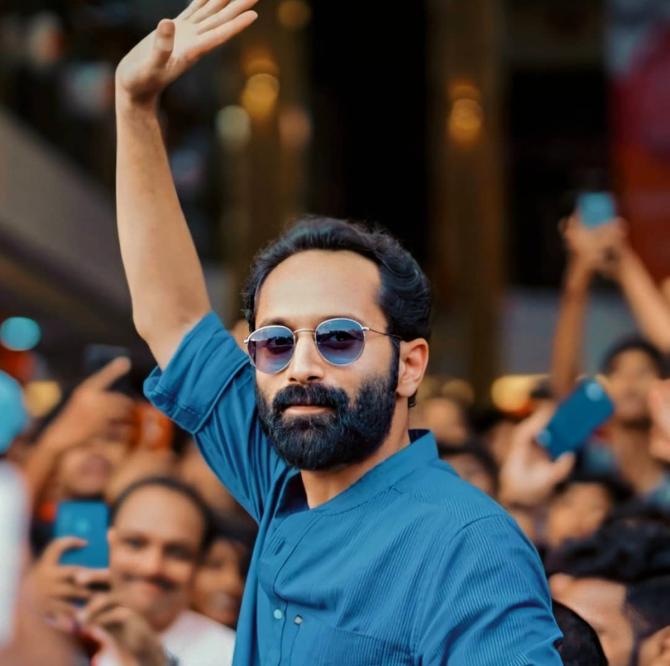
Fahadh Faasil gives yet another brilliant performance in his latest film, Joji.
But he confesses to Subhash K Jha, "It was very stressful to shoot."
Congratulations! Yet another incredible portrait in Joji.
Thank you.
It's been a turbulent last few months for me.
After the accident, my stitches have recently come out.
Have you healed?
I fractured my nasal bone. That requires time to mend fully.
You do realise that no role is worth risking your life?
Now I realise it. I spoke to Mr Kamal Haasan, who has a history of innumerable broken bones and injuries.
You must guard yourself. You are a national treasure.
I don't know about that, but I do know life and health are precious.
I realise, as an actor, that I need to be responsible to Fahadh Faazil, the human being.
Also, it was not a dangerous shot, so it could have happened any time.
But there has to be a bridge between the character and the actor.
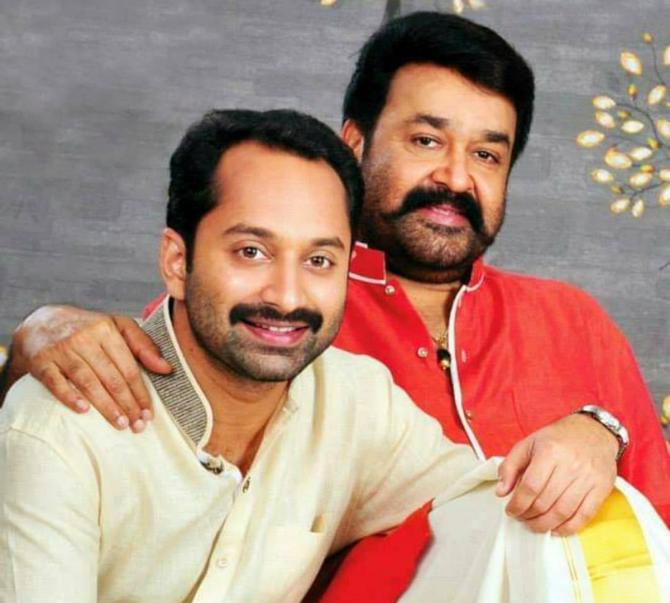
You lost a lot of time because of the accident?
No, I don't function on timelines.
I feel sorry for the people, who are waiting for me to work.
I am ready to work when I am ready.
I like my time off doing nothing.
I take time a lot of time off from shooting.
How have you been able to work through the pandemic?
Well, C U Soon was shot during the initial phase of the lockdown.
Irul and Joji were shot last year after a bit of normalcy was restored.
I decided it was time to get back to work; there was no point in waiting for the COVID to be over.
I decided to work on modest-budgeted, smaller, projects, which did not require much commuting.
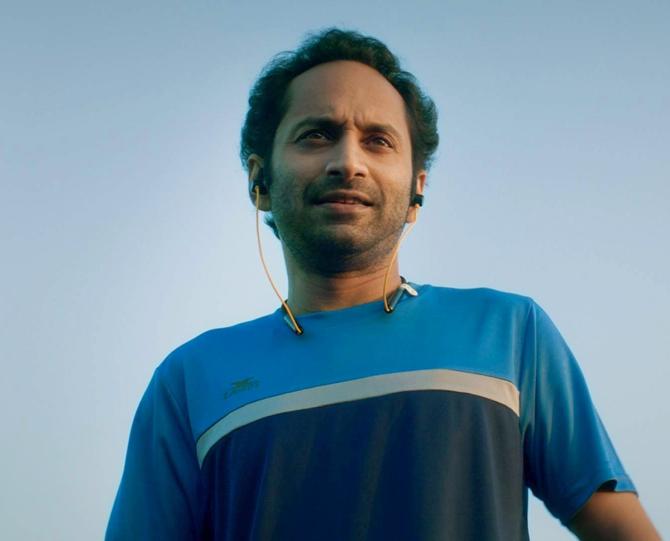
I resent you calling Joji a smaller film.
Smaller, in the sense that it was easier to shoot but very difficult to capture on camera.
In fact, Joji is by far the most difficult role I've ever played.
It was very stressful to shoot.
Not just the actors, I could see even those who were out of camera range getting stressed.
I normally like to get feedback from technicians, especially the lightmen, because they're able to observe the minutest of details from where they are.
When I spoke to them, I could see how stressed they were.
Everybody on the sets of Joji was logged in to the drama.
I didn't realise how stressed I was until after the shooting.
When I recently had time off after my accident, I realised how stressful the shooting of Joji was for me.
I don't think I've ever been more tense playing any character.
The mask always played an important part in Shakespeare's plays. In Joji, which is an adaptation of Macbeth, the mask acquires a renewed relevance because of what is going in the world.
Yes, these were nuances that were worked into the script.
We wanted to make Joji relevant to our times.
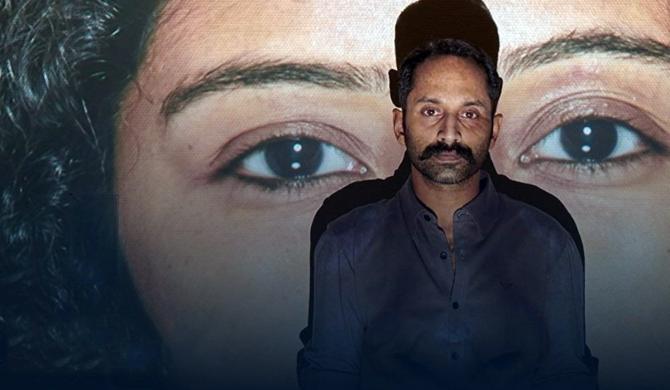
After two back-to-back films, are you exhausted or are you already on your next project?
Even if I was -- and I am not -- a film project cannot start when I want it to.
It depends on the readiness of a lot of people.
This is one of the reasons why I am more comfortable producing my own films.
If I had gone to another producer for Joji, it would have been very difficult to convince him.
Producing my own films gives me more freedom.
I am responsible not for others' money, but my own.
Is the producer's responsibilities at the back of your mind while shooting?
Not really. When we are shooting, we don't think about these things.
We shoot the film the way we want to.
How do you manage to immerse yourself so completely in the characters you play?
To be very honest, I don't think it happens in all the films I do.
Yes, it has happened occasionally.
It happened in Dileesh's (Pothan, Joji's director) films.
I believe it's the ambience he creates for me.
Dileesh has a unique way of approaching his subject and characters.
Also, he shoots his films chronologically. That really helps an actor to develop his character.
I've worked with a lot of brilliant directors, but Dileesh is one of the few who shoots the sequences chronologically.
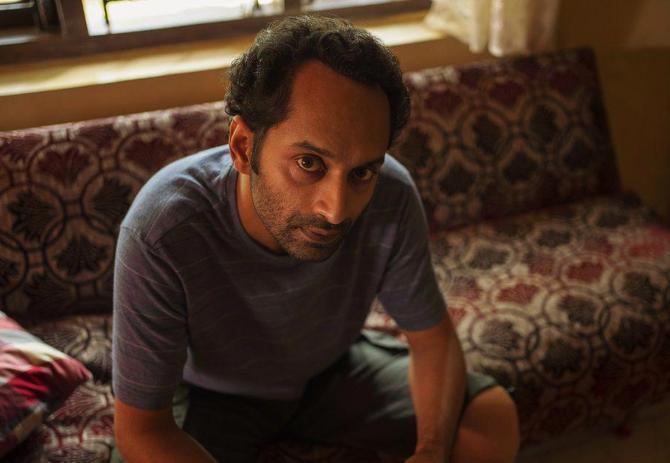
So is this a marriage for life?
You mean Dileesh and me? No, no.
The next film that we are collaborating on, we are producing together, but someone else is directing.
Dileesh is discussing projects with some other actors too, but we have a formed a production company together.
How important is it for you to keep scaling new heights as an actor?
I don't think about it.
After Joji, my audience is not thinking about my other works.
But yes, after Irul, people went back to my earlier works.
Would you agree that Irul was a disappointment?
Yes, absolutely! It was made with a lot of limitations.
Tell me about your film with Kamal Haasan.
It's a very interesting narrative.
I am really looking forward to it.
I hope to join the shooting in August.
In May, I have a release called Maalik in which we take on the coastal politics of Kerala.
It's a fictionalised version of reality.
I don't want it discussed for its controversial aspects.
I'd like it to be discussed for its cinematic merits.
The first 12 minutes of Maalik is one single shot.
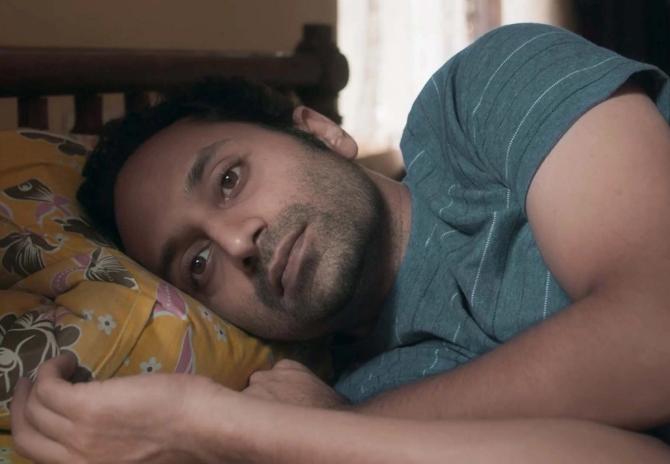
Tell us about your future projects.
I am doing a film called Malayankunu, which my dad (film-maker Fazil) is producing.
He had produced the film that had launched me as an actor and now I am collaborating with him after 18 years.
It's a subject I haven't done.
It's based on a real-life incident and will be completed in July.
We are looking at a theatrical release in August-September 2021.
When we spoke the last time, you were very emphatic on keeping the theatrical and digital release apart?
I still believe that the two platforms are separate.
I don't think Joji would have worked if it released in theatres.
I don't think Joji would have appealed to audiences who look for commercial aspects in their cinema.
Everything -- from the sound to the pace -- is designed for home viewing.
In fact, I plan to make a theatrical version of my digital film, C U Soon.
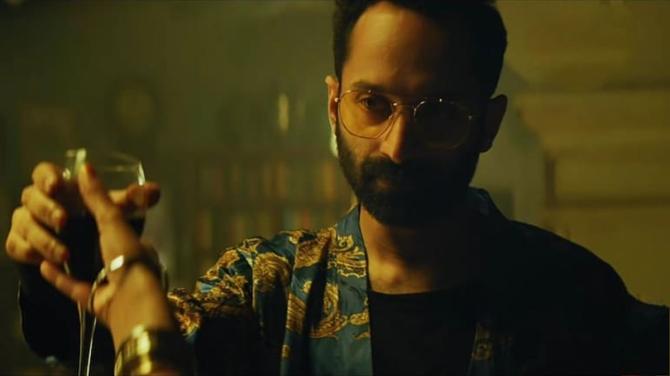
How satisfying it for you to have such a large pan-India, in fact, global, audience watching your films on the digital platform?
It's an honour.
It's an amazing feeling.
But I don't think too far ahead. I don't plan my films for posterity.
Do you intend to be an actor all your life?
I really don't know. I keep wondering how people do the same job for 20-30 years.
I would be an actor, yes, but I could explore the stage later in my life.
Finally, do you crave to be in Hindi cinema?
I crave to be in cinema.
I crave to get to know more about the technical side of film-making.
If am in a plane with a superstar and a screenwriter, I would rather sit next to the writer.
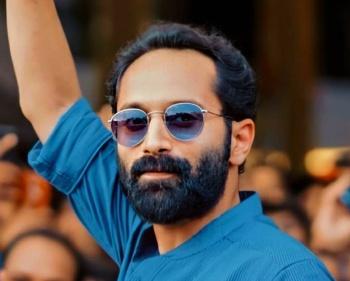
Feature Presentation: Rajesh Alva/Rediff.com











 © 2025
© 2025